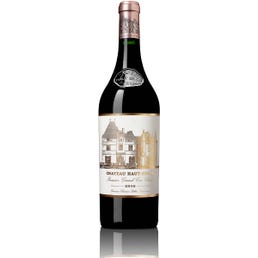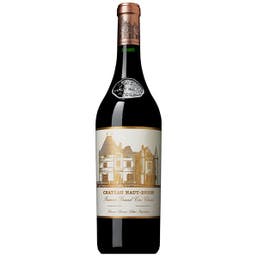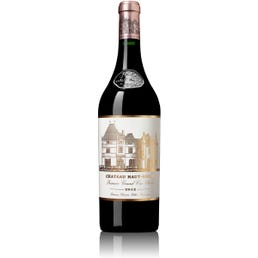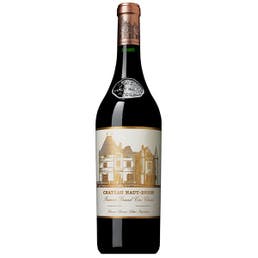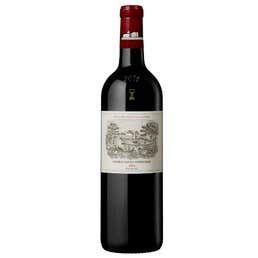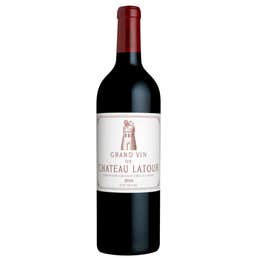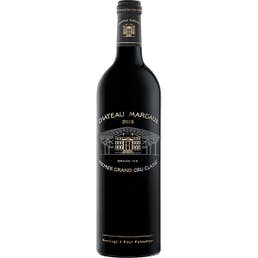Château Haut-Brion 1999
• Domaine: Château Haut-Brion
• Appellation: Pessac-Léognan
• Classification: First Growth, Premier Grand Cru Classé
• Origin: Left Bank, Bordeaux, France
Of the five rarified First Growths estates, only Château Haut-Brion is located outside Médoc. It is situated on the southside edge of the city of Bordeaux, in a region traditionally known as Graves, but more recently identified as Pessac-Léognan after the carve-out of the new appellation. What once was without doubt the countryside, the surroundings around the property nowadays show signs of urban sprawl over nearly two centuries. In any major wine region, some producers inevitably fall victim to rampant commercialization. Not so for Château Haut-Brion. This First Growth estate retains its authenticity throughout the centuries. Château Haut-Brion may lack the fanfare other First Growths have, but it has been adored by many wine lovers. From Thomas Jefferson - America’s first wine connoisseur, to Queen Elizabeth II whose cellar stocks this wine, to the well-respected wine critic, Robert Parker Jr, this First Growth château continues to retain its authenticity and captivate audiences throughout the ages.
Château Haut-Brion was first planted in 1553 and is considered the oldest First Growth. The sprawling, ancient vineyards of Château Haut-Brion date back to 1st century AD, and Roman coins can be found scattered in its heavily graveled vineyards. Haut-Brion was considered a “cru” vineyard as early as the 15th Century. Interestingly enough, Haut-Brion was the subject of the first ever tasting note from Samuel Pepys, the author of The Diarist in 1663. He wrote that he, “drank a sort of French wine called Ho Bryen that hath a good and most particular taste I never met with.” Even though he was no Robert Parker or James Suckling, he still knew a great wine when he had one.
Throughout the ages, the estate captured the hearts and minds of many, especially the ruling class and political elite. King Charles II served Château Haut-Brion at his coronation after the English monarchy was restored, initiating the century-spanning love affair between England’s ruling class and Haut-Brion. Throughout the 17th and 18th centuries, Haut-Brion was considered a viticultural darling throughout Europe, culminating its achievement of First Growth status during the 1855 Classification. Château Haut-Brion passed through a number of hands, including those of foreign ministers, aristocrats, and financiers alike. Less than a century later, it was purchased by American Financier Clarence Dillon in 1935. He pioneered several innovations at the estate – such as using tractors in the vineyards, stainless-steel fermentation tanks in the vat room, and a bottling process on property. The signature squat bottles -- reminiscent of old decanter models -- are exclusive to Château Haut Brion and immediately recognizable.
Thanks to the visionary legacy of one of the most talented and gifted wine administrators Bordeaux has ever known, Jean Delmas, Château Haut-Brion was a leader in propagating high quality Bordeaux varietals. The 127 acre estates hosts carefully selected varietals like Cabernet Sauvignon, Merlot, Cabernet Franc, Semillon, and Sauvignon Blanc. They take well to the light gravely topsoil mixed with a deeper layer of clay that is signature to the region. From state-of-the-art clonal selections to practices such as crop-thinning – a technique also used at the incomparable Château Pétrus -- the winemaking team at Château Haut-Brion leaves nothing to chance. The combination of science and the particular terroir allows Château Haut-Brion to produce both excellent red and white wines with unmistakable elegance.
Production here is smaller than some of the other first growths, and everything is painstakingly tended to by a staff of under 100 people. The wine spends a long time resting in new oak barrels – approximately 30 months. At Château Haut-Brion, both red and white wines steal the show. With a micro production of 800 cases a year, Château Haut-Brion Blanc lends a remarkable strength and astonishes many a drinker year after year. It is considered one of the finest wines in all of Graves.
The red wines of Château Haut-Brion have a captivatingly mineral, smoky quality that sets them apart from the other First Growths. Due to the predominance of Merlot, the wines remain are considered accessible - even charming at times - and please many palates. They are not to be underestimated, however, as the best vintages can age potentially 30 years. Fortunately for many a buyer, the wines of Haut Brion are often more affordable than any of the other First Growth wines and significantly over deliver. With the perfect combination of innovation, tradition, and an almost stubborn sense of authenticity, Château Haut-Brion remains in class of its own.
Tasting Notes
"Deep plum, currant, and mineral notes emerge from the concentrated, beautifully balanced, pure 1999 Haut Brion. It seems to be cut from the same mold as years such as 1979 and 1985. There is a hint of graphite in the abundant fruit. The wine is medium to full-bodied, nuanced, subtle, deep, and provocatively elegant. It is made in a style that only Haut Brion appears capable of achieving. The finish is extremely long, the tannins sweet, and the overall impression one of delicacy interwoven with power and ripeness. Anticipated maturity: 2007-2025." - Robert Parker Jr., The Wine Advocate (4/29/2002, Issue 140), Ratings: 93, Drink from: 2007-2025
| LWIN | 1017092 |
|---|---|
| Stock Status | Out of Stock |
| Appellation | Pessac-Léognan |
| Vintage | 1999 |
| Brand | Château Haut-Brion |
| Shipping Weight | 3.000000 |




